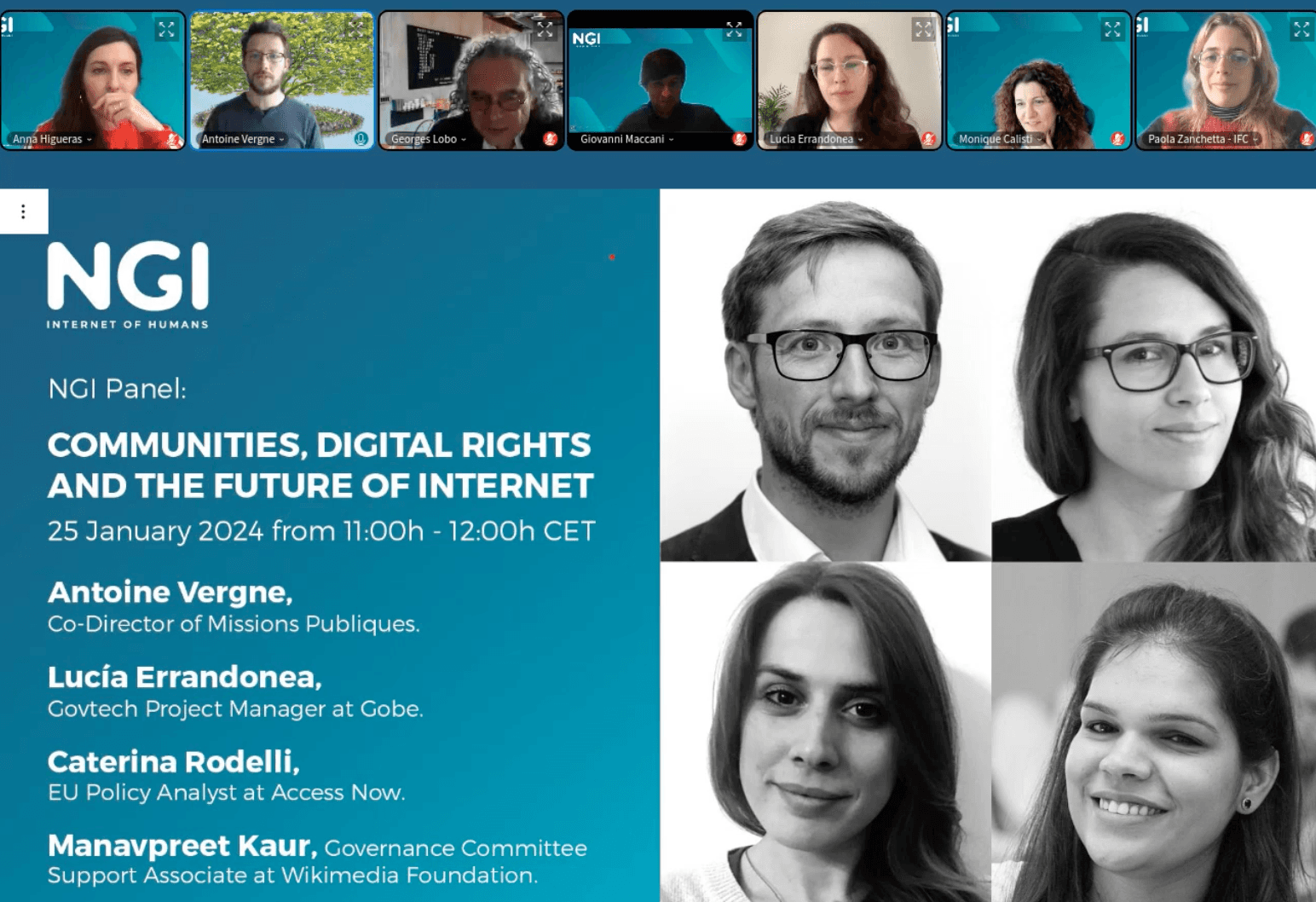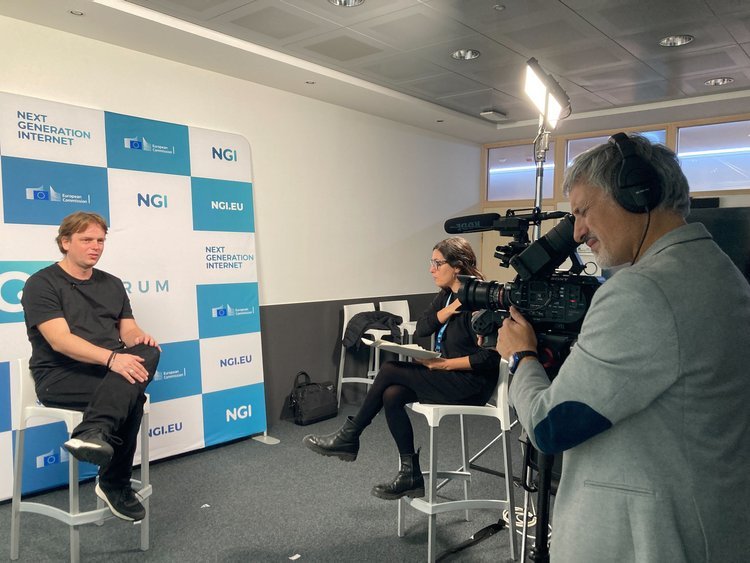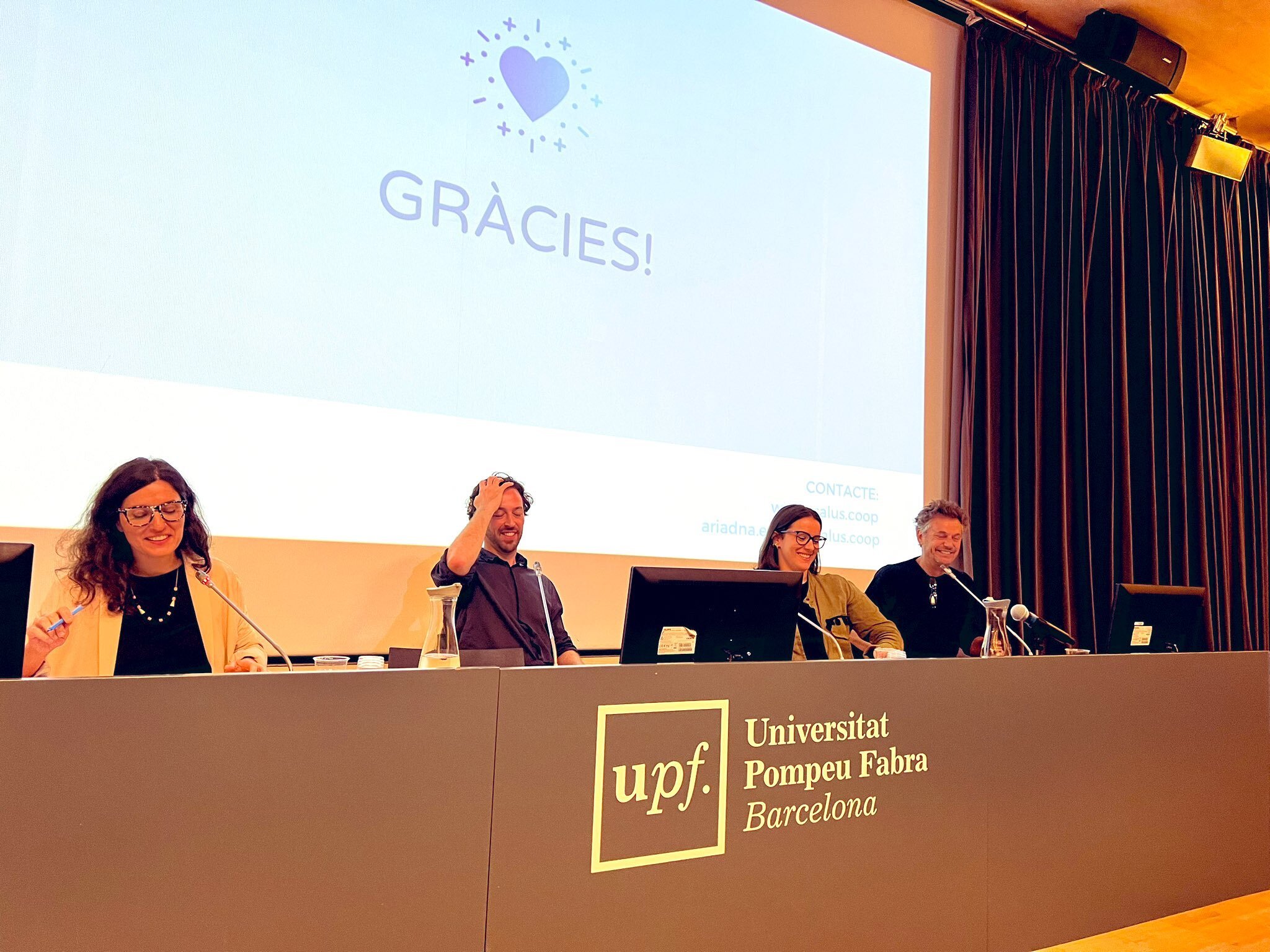Scientific research
Scientific research
Reflections from the NGI panel on digital rights and participation
Reflections from the NGI panel on digital rights and participation
30 de enero de 2024


By Sergi Serra, Projects and Communication, and Anna Higueras, Project Manager at Ideas for Change. (Original publication in English)
Last week, Ideas for Change, in the context of the Next Generation Internet Outreach Office, organized the "Next Generation Internet (NGI) Panel: Communities, Digital Rights, and the Future of the Internet". Held online on Thursday, January 25th at 11 a.m., this event is part of the European Commission's NGI Initiative, which seeks to reshape the Internet to reflect European values and norms.
Anna Higueras, project manager at Ideas for Change, skillfully led the session. She introduced the panel topic: exploring various strategies to promote a "human Internet" that safeguards digital human rights.
Before the panel, the event featured contributions from Monique Calisti, General Director of Martel Innovate, and Georges Lobo from the European Commission. Calisti highlighted the need for a united community effort to make the Internet universally accessible, while Lobo spoke about the EU's political framework and its role in shaping the future of the Internet.
The first speaker, Manavpreet Kaur from the Wikimedia Foundation, emphasized the importance of collaboration in creating open standards and fostering global dialogue about the future of the Internet. Kaur highlighted Wikimedia's role in enabling worldwide participation in the creation of freely licensed educational content.
Antoine Vergne, Co-Director of Missions Publiques, then addressed the complexities of Internet impact and governance. He pointed out the dichotomy between the global reach of the Internet and the limited scope of national governance. Vergne stressed the need for long-term planning in global governance and advocated for including everyday citizens in discussions about Internet governance to enrich and expand the discourse.
Lucía Errandonea from GOBE and Algorights closed the roundtable. She explained the implications of AI from the perspective of social justice and human rights, stressing the necessity for inclusive and transparent technologies. Errandonea called for more formal platforms for cross-sector collaboration in the design, implementation, and oversight of AI.
The panel collectively advocated for an inclusive and human-centric approach to developing a future Internet that is equitable and sustainable. They also urged the NGI to promote wider collaboration and stakeholder engagement.
Giovanni Maccani, Research Director at Ideas for Change, led the open discussion that followed, addressing political and technological cooperation to shape the future of the Internet with the panelists. The session concluded with gratitude for the contributions of the participants and a reaffirmation of the commitment to continue the dialogue and collaboration within the framework of the NGI project.
The event is available on the NGI PeerTube profile of the European Commission for those interested in these fundamental discussions.
By Sergi Serra, Projects and Communication, and Anna Higueras, Project Manager at Ideas for Change. (Original publication in English)
Last week, Ideas for Change, in the context of the Next Generation Internet Outreach Office, organized the "Next Generation Internet (NGI) Panel: Communities, Digital Rights, and the Future of the Internet". Held online on Thursday, January 25th at 11 a.m., this event is part of the European Commission's NGI Initiative, which seeks to reshape the Internet to reflect European values and norms.
Anna Higueras, project manager at Ideas for Change, skillfully led the session. She introduced the panel topic: exploring various strategies to promote a "human Internet" that safeguards digital human rights.
Before the panel, the event featured contributions from Monique Calisti, General Director of Martel Innovate, and Georges Lobo from the European Commission. Calisti highlighted the need for a united community effort to make the Internet universally accessible, while Lobo spoke about the EU's political framework and its role in shaping the future of the Internet.
The first speaker, Manavpreet Kaur from the Wikimedia Foundation, emphasized the importance of collaboration in creating open standards and fostering global dialogue about the future of the Internet. Kaur highlighted Wikimedia's role in enabling worldwide participation in the creation of freely licensed educational content.
Antoine Vergne, Co-Director of Missions Publiques, then addressed the complexities of Internet impact and governance. He pointed out the dichotomy between the global reach of the Internet and the limited scope of national governance. Vergne stressed the need for long-term planning in global governance and advocated for including everyday citizens in discussions about Internet governance to enrich and expand the discourse.
Lucía Errandonea from GOBE and Algorights closed the roundtable. She explained the implications of AI from the perspective of social justice and human rights, stressing the necessity for inclusive and transparent technologies. Errandonea called for more formal platforms for cross-sector collaboration in the design, implementation, and oversight of AI.
The panel collectively advocated for an inclusive and human-centric approach to developing a future Internet that is equitable and sustainable. They also urged the NGI to promote wider collaboration and stakeholder engagement.
Giovanni Maccani, Research Director at Ideas for Change, led the open discussion that followed, addressing political and technological cooperation to shape the future of the Internet with the panelists. The session concluded with gratitude for the contributions of the participants and a reaffirmation of the commitment to continue the dialogue and collaboration within the framework of the NGI project.
The event is available on the NGI PeerTube profile of the European Commission for those interested in these fundamental discussions.


